Starting a property management business can be a lucrative and rewarding venture, especially with the growing demand for rental properties. If you’re wondering how to start a property management business, this guide will walk you through the essential steps, from licensing to marketing and scaling your company effectively. Understanding how to start a property management business the right way can set you up for long-term success in this thriving industry.
Understanding Property Management
Before you dive into starting your own business, it is crucial to understand what property management entails. A property management business oversees rental properties, handles tenant relations, collects rent, and ensures maintenance and legal compliance. Your role is to act as an intermediary between property owners and tenants while ensuring smooth operations. To streamline these tasks, using a local property management software can significantly enhance efficiency and compliance.
Step 1: Conduct Market Research
The first step in starting a property management business is conducting thorough market research. This will help you understand the demand for property management services in your area, identify potential competitors, and determine your target audience.
Key Aspects to Research:
- The number of rental properties in your area
- The average management fee charged by competitors
- The needs of property owners and tenants
- Local regulations affecting property management businesses
- Emerging trends in property management services
- The impact of real estate market fluctuations on rental demand
Step 2: Develop a Business Plan
Creating a detailed business plan is essential for success. It serves as a roadmap, outlining your goals, strategies, and financial projections.

Your Business Plan Should Include:
- Business structure (LLC, Corporation, Sole Proprietorship, etc.)
- Services offered (tenant screening, maintenance, rent collection, etc.)
- Pricing model and fee structure
- Marketing and customer acquisition strategies
- Budget and financial projections
- Growth and expansion plans for long-term success
- Strategies to attract real estate investors and landlords
Step 3: Obtain Necessary Licenses and Certifications
Depending on your location, you may need specific licenses or certifications to legally operate a property management business. Some states require a real estate broker’s license, while others may require specific property management certifications.
Common Requirements:
- Real estate broker license (if applicable)
- Property management certification (CPM, CAM, or NALP)
- Business license and insurance
- Federal Tax Identification Number (EIN)
- Compliance with fair housing laws and rental regulations
- Knowledge of landlord-tenant laws and eviction processes
Step 4: Build Your Brand and Online Presence
A strong brand and online presence will help you attract clients. Your brand should reflect professionalism, reliability, and trustworthiness.
Branding Essentials:
- Business name and logo
- Professional website with service details and testimonials
- Social media presence on platforms like LinkedIn and Facebook
- Business cards and brochures for networking
- Customer reviews and testimonials to establish credibility
- Content marketing through blogs and educational resources
Step 5: Set Up Property Management Software
Using property management software can help streamline operations by automating tasks such as rent collection, maintenance requests, and financial reporting. In addition, staying compliant with Australian property regulations is crucial, and leveraging the right software can simplify this process.
Popular Property Management Software:
- Buildium
- AppFolio
- Rentec Direct
- Propertyware
- TenantCloud
- DoorLoop
- Yardi Voyager
Step 6: Develop a Marketing Strategy
Effective marketing will help you attract property owners who need management services. Utilize both online and offline marketing strategies to grow your client base.
Marketing Strategies:
- Search Engine Optimization (SEO) to rank higher on Google
- Paid advertising (Google Ads, Facebook Ads)
- Networking with real estate agents and property investors
- Direct mail campaigns to landlords
- Attending local real estate events and conferences
- Email marketing and referral programs to acquire new clients
- Building partnerships with local real estate brokers
Step 7: Establish Legal and Financial Systems
Setting up proper legal and financial systems is crucial for running a smooth and compliant business. You need to manage contracts, payments, and financial records efficiently.
Key Considerations:
- Open a business bank account
- Get business insurance (liability, errors & omissions, workers’ compensation)
- Use accounting software (QuickBooks, FreshBooks)
- Draft client contracts and property management agreements
- Ensure compliance with tax laws and financial reporting standards
- Keep track of rental income, property expenses, and maintenance costs
Step 8: Hire and Train Staff (If Needed)
As your business grows, you may need to hire staff such as property managers, maintenance personnel, and administrative support. Ensure they are trained and knowledgeable about property laws and customer service.
Training Focus Areas:
- Property maintenance and repairs
- Tenant screening and lease agreements
- Conflict resolution and customer service
- Fair housing laws and legal compliance
- Software training for efficiency in property management
- Emergency handling and crisis management in rental properties
Step 9: Provide Excellent Customer Service
Customer satisfaction is key to success in property management. Happy tenants and property owners will lead to positive reviews and referrals.
Tips for Excellent Service:
- Respond to maintenance requests promptly
- Keep clear and open communication with tenants and landlords
- Ensure legal compliance in all aspects of property management
- Regularly inspect properties and address issues proactively
- Offer 24/7 support for emergency situations
- Provide transparency in financial reports and rental agreements
Step 10: Scale Your Business
Once your property management business is stable, you can focus on scaling and expanding your services.
Ways to Scale:
- Offer additional services like property investment consulting
- Expand to new locations or markets
- Partner with real estate agencies and developers
- Invest in marketing and branding to attract more clients
- Automate repetitive tasks to improve operational efficiency
- Acquire more properties under management through networking
Conclusion
Now that you know how to start a property management business, it’s time to take action. With the right planning, licensing, and marketing, you can build a successful property management company. Focus on providing excellent service, leveraging technology, and continuously improving your business to achieve long-term success. Expanding your expertise in real estate trends and property investment strategies will also help you stay ahead in this competitive industry.




